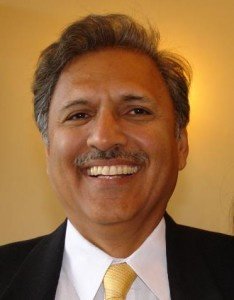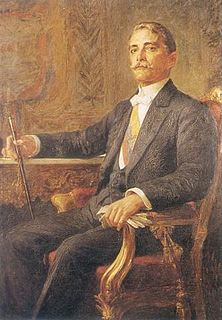A general election is an election in which all or most members of a given political body are chosen. These are usually held for a nation's primary legislative body, as distinguished from by-elections and local elections.

The President of Russia, officially the President of the Russian Federation is the elected head of state of the Russian Federation, as well as holder of the highest office in Russia and commander-in-chief of the Russian Armed Forces.

The President of the Republic of South Africa is the head of state and head of government under the Constitution of South Africa. From 1961 to 1994, the head of state was called the State President.
A presidential election is the election of any head of state whose official title is President.

Prior to the coup d'état of August 2005, Mauritania was a one party dominant state with the Democratic and Social Republican Party in power. Opposition parties were allowed, but widely considered to have no real chance of gaining power.

Elections in Benin take place within the framework of a multi-party democracy and a presidential system. Both the President and the National Assembly are directly elected by voters, with elections organised by the Autonomous National Electoral Commission (CENA).

Elections in Zambia take place within the framework of a multi-party democracy and a presidential system. The President and National Assembly are simultaneously elected for five-year terms.

The National Assembly is the legislative branch of the government of Nicaragua founded in 1986 to replace the bicameral National Congress of Nicaragua, which consisted of two chambers.
Bénéwendé Stanislas Sankara is a Burkinabé politician and the President of the Union for Rebirth/Sankarist Movement (UNIR/MS) party.

The United States Senate elections of 1908 and 1909, some states elected their senators directly even before passage of the 17th Amendment in 1913. Oregon pioneered direct election and experimented with different measures over several years until it succeeded in 1907. Soon after, Nebraska followed suit and laid the foundation for other states to adopt measures reflecting the people's will. By 1912, as many as 29 states elected senators either as nominees of their party's primary or in conjunction with a general election. The Republicans lost two seats overall.

The President of Montenegro is the head of state of Montenegro. The current president is Milo Đukanović, who was elected in the first round of the 2018 presidential election with 53.90% of the vote. The official residence of the President is the Blue Palace located in the former royal capital Cetinje.
This is a complete list of Philippine Presidential elections since 1935 with the candidates' political party and its corresponding percentage.

The Colombian Constitution of 1886 was the constitution that created the Republic of Colombia. Before 1886, the country was called United States of Colombia. The coalition of moderate Liberals and Conservatives that ended the liberal hegemony and placed Rafael Nuñez in power repealed the Constitution of Rionegro and substituted the constitution of 1886. From then on, the country was officially called the Republic of Colombia.

Presidential elections were held on 30 July 2013 in Pakistan to elect the 12th President of Pakistan. Incumbent President Asif Ali Zardari’s term was scheduled to expire on 8 September 2013; and as such, Article 41 of the Constitution of Pakistan required the elections to be held no later than 8 August 2013. The Electoral College of Pakistan – a joint sitting of the Senate, National Assembly and Provincial Assemblies – were tasked with electing a new President to succeed President Zardari, who declined to seek a second term in office. After the Pakistan Peoples Party and its allies boycotted the presidential election, the two candidates were Mamnoon Hussain backed by the Pakistan Muslim League (N), and Wajihuddin Ahmed backed by Pakistan Tehreek-e-Insaf. Agra-born Hussain was elected president by a majority securing 432 votes. The elections were the first time in Pakistani history where a civilian President was elected while an incumbent civilian President was still in office, completing a historic and democratic transition of power that began with the 2013 General Elections.

Indirect presidential elections were held in Colombia on 3 August 1909. The result was a victory for Ramón González Valencia.

Presidential elections were held in Pakistan on 4 September 2018.

General elections were held in Nicaragua on 6 November 2016 to elect the President, the National Assembly and members of the Central American Parliament. Incumbent President Daniel Ortega of the Sandinista National Liberation Front (FLSN) was re-elected for a third consecutive term amid charges he and the FSLN used their control of state resources to bypass constitutional term limits and hamstring political rivals. The FSLN benefited from strong economic growth and relatively low levels of crime compared to neighbouring countries.
Presidential elections in France determine who will serve as the President of France for the next several years.
General elections are scheduled to be held in Turkey in 2023. Voters will elect a new president, as well as 600 members of the Grand National Assembly of Turkey, each for a term of five years.

















